genocide, Human Rights, Torture, Violations of U.S. and International Law
Podcast: Play in new window | Download
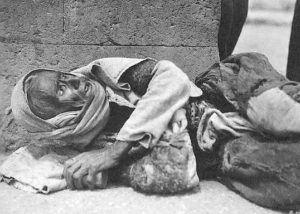
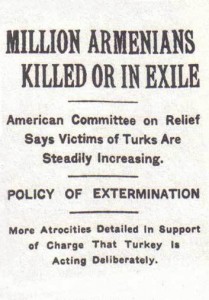
Radio Documentary – It Was Genocide: Armenian Survivor Stories
Around the world, April 24 marks the observance of the Armenian Genocide. On that day in 1915 the Interior Minister of the Ottoman Empire ordered the arrest and hangings of Armenian intellectuals and community leaders in Constantinople. It was the beginning of a systematic and well-documented plan to eliminate the Armenians, who were Christian, and who had been under Ottoman rule and treated as second class citizens since the 15th century.
The unspeakable and gruesome nature of the killings—beheadings of groups of babies, dismemberments, mass burnings, mass drownings, use of toxic gas, lethal injections of morphine or injections with the blood of typhoid fever patients—render oral histories particularly difficult for survivors of the victims.
Why did this happen? Despite being deemed inferior to Turkish Muslims, the Armenian community had attained a prestigious position in the Ottoman Empire and the central authorities there grew apprehensive of their power and longing for a homeland. The concerted plan of deportation and extermination was effected, in large part, because World War I demanded the involvement and concern of potential allied countries. As the writer Grigoris Balakian wrote, the war provided the Turkish government “their sole opportunity, one unprecedented” to exploit the chaos of war in order to carry out their extermination plan.
As Armenians escaped to several countries, including the United States, a number came to New Britain, Connecticut in 1892 to work in the factories of what was then known as the hardware capital of the world. By 1940 nearly 3,000 Armenians lived there in a tight-knit community.
Pope Frances calls it a duty not to forget “the senseless slaughter” of an estimated one and a half million Armenians by the Ottoman Turks from 1915 to 1923. “Concealing or denying evil is like allowing a wound to keep bleeding without bandaging it,” the Pope said just two weeks before the 100th anniversary of the systematic implementation of a plan to exterminate the Armenian race.
Special thanks to Jennie Garabedian, Arthur Sheverdian, Ruth Swisher, Harry Mazadoorian, and Roxie Maljanian. Produced and written by Heidi Boghosian and Geoff Brady.
—-
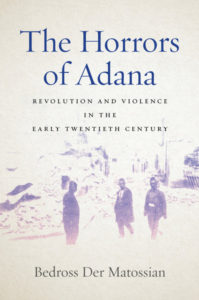
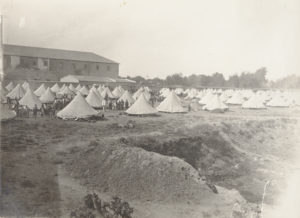
Horrors Of Adana by Bedross Der Matossian
In April 1909, a few years before the 1914 Ottoman massacre of Armenians, two massacres killed more than 20,000 Christians, primarily Armenians. They transpired in Adana, situated on the Mediterranean cost of southern Anatolia. Images of the area after the attacks show unprecedented destruction of a formerly prosperous city. Armenian churches, businesses, and homes were destroyed, and the violence quickly spread across the province and extended outside its eastern borders into the province of Aleppo.
Despite the magnitude of these devastating atrocities, no one was held accountable. In fact, they have have remained largely absent from history books. But that’s about to change.
Guest – Bedross Der Matossian has written a meticulously-researched examination of these events. It’s called The Horrors of Adana: Revolution and Violence in the Early Twentieth Century, and it’s published by Stanford University Press. It’s a detailed exploration of the twin massacres and the events and the economic and sociopolitical transformations leading up to them. He is Associate Professor at the University of Nebraska, Lincoln, and the president of the Society for Armenian Studies. He is the author and co-editor of several books including the award-winning book, Shattered Dreams of Revolution: From Liberty to Violence in the Late Ottoman Empire.

——————————-
Civil Liberties, Civil Rights, Human Rights, Political Prisoner, Supreme Court, U.S. Militarism, War Resister
Podcast: Play in new window | Download
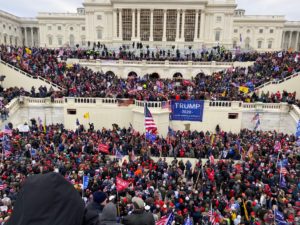
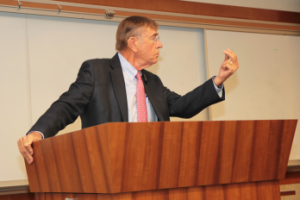
Federal Case Against Donald Trump
There is a great deal of speculation as to whether former president Donald Trump will eventually be indicted for crimes allegedly committed while he was the president. Well, in what might prove to be the most serious blow yet to Trump’s effort to stay out of jail, on March 28th, a federal judge ruled that both former president Trump and Atty. John Eastman who had advised him on how to overturn the 2020 election had most likely committed felonies, including obstructing the work of Congress and conspiring to defraud the United States. The ruling represents a highly significant breakthrough for the House committee investigating the January 6th attack on the Capitol. Judge David O. Carter found that the actions taken by Trump and Eastman amounted to “a coup in search of a legal theory.”
The judge’s ruling may be the House committee’s biggest win to date, as it suggests that the investigators have already built a case strong enough to convince a federal judge of Trump’s culpability in the January 6th insurrection.
Specifically, the ruling means that the House committee will now receive more than 100 emails related to the legal strategy proposed by Eastman to pressure Vice President Mike Pence not to certify electors from swing states when Congress convened on January 6, and thus to not certify the electoral vote. In making his ruling Judge Carter said, “Dr. Eastman and President Trump launched a campaign to overturn a democratic election, an action unprecedented in American history.”
Just how significant is this federal court ruling? What would a federal prosecutor need to show a judge and jury to be able to hold Trump liable for his actions around January 6th? And what about other actions by the former president while in office that many criminal law experts claim were illegal? And, of course, what role will politics ultimately play in determining whether Trump ever stands trial and is convicted by a jury?
Guest – Attorney Michael Tigar. Michael Tigar has been acting professor of law at UCLA, the Jos. D. Jamil Chair of Law at the University of Texas, and the holder of an endowed professorship at Washington College of Law. He is the author of numerous books, including Thinking About Terrorism: The Threat to Civil Liberties in Times if National Emergency and most recently, Sensing Injustice: A Lawyer’s Life in the Battle for Change. He has also represented such notable clients as The Washington Post, Rep. Ron Dellums, and Lynne Stewart.
—-
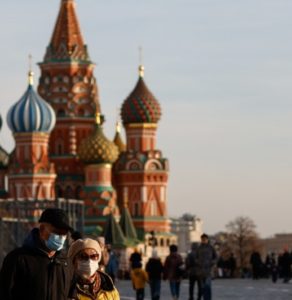
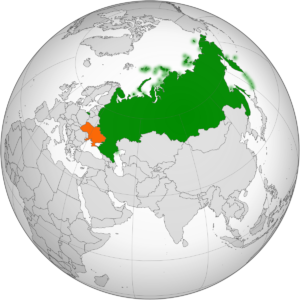
Russia, Ukraine War Analysis
And now to the matter of Russia’s war in Ukraine and the role of a free press in war time. Today, much is made of the fact that in Putin’s Russia, little or no accurate news of the war is reaching the Russian people. Instead, what they read in their newspapers or hear on their radios and see on their televisions is no more or less than what Putin wants them to read or see or hear. Meanwhile, here in the United States, the American people are provided with virtually non-stop newspaper and live eve-witness television coverage of the war in Ukraine; “coverage” that comes from reporters and others, often in real time, and on the ground in the middle of Putin’s war. Surely the dramatically contrasting way in which the Russian people and the American people are experiencing the war via the media must play a major role in how the two peoples feel about the war. So, too, how the US wars in Iraq and Afghanistan were covered by the US media must have played a role in how we, the American people, felt about those wars. Well, today we look at the role a nation’s media can play in shaping public support for or against a war that is being fought by that nation.
Guest – Norman Solomon is truly one of America’s true champions of a free and honest press, free and honest in war time as well as in peacetime. Mr. Solomon is one of the founders of F.A.I.R., or Fairness and Accuracy in Reporting, which has proved to be a powerful watchdog of the US media. Norman Solomon is also the co-founder of the internet news and opinion source, RootsAction.org. He is, of course, the author of too many articles to recite here. He is also the author of a number of books, including “War Made Easy: How Presidents and Pundits Keep Spinning Us to Death;” and “Made Love, Got War: Close Encounters with America’s Warfare State.”

——————————-
Civil Liberties, Civil Rights, Crony Capitalism, Supreme Court, Violations of U.S. and International Law
Podcast: Play in new window | Download
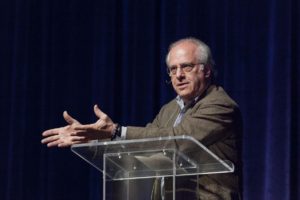
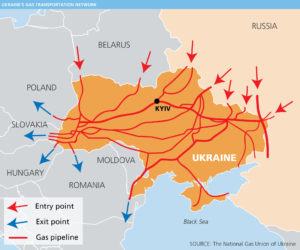
The Effects Of War On Our Economy
The US government is seeking regime change in Russia. According to Biden, they want to get rid of Putin and impose the most draconian sanctions ever on Russia after its illegal war of aggression on Ukraine, a war that the US-led NATO provoked. Once again, as it did in Afghanistan, the United States got Russia involved in a war and now hopes to bleed and bury her. For this ignoble end, the US military will fight Russia in this proxy war with every last drop of Ukrainian blood.
It is the opinion of many historians and economists that the American empire is on the way out. They think its exit has been accelerated by the sanctions it has imposed on Russia, that these sanctions have boomeranged and that the unipolar world headed by the United States is about to be fragmented.
What will be the effect of the sanctions on the US dollar, which is now the currency of international trade, if the United States loses its place as the unipolar power on the planet? How will the US economy be affected if the dollar is no longer used as the only reserve currency for international trade and what will the consequences be for Americans?
How will the war affect those who depended on Ukraine as the breadbasket of the world for its massive production of wheat? What about its effect on Europeans, who depend on Russian natural gas and oil?
Guest – Economist Richard Wolff assesses the catastrophic effect of the Russian invasion of Ukraine. Richard Wolff is professor emeritus at the University of Massachusetts, where he was the chairman of the economics department. He is the founder of Democracy at Work and the author of numerous books. He is presently a visiting professor at the New School in New York City.
—-
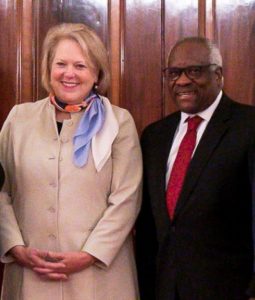
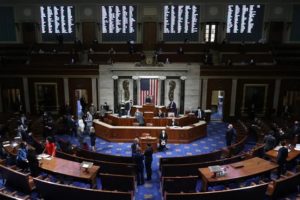
Supreme Court Justice Clarence Thomas Ethical Conflict Of Interest
In an ethics bombshell for the legal community, the Washington Post recently broke the story of Supreme Court Justice Clarence Thomas’s wife Virginia (or “Ginni”) Thomas’s text messages to former White House chief of staff Mark Meadows.
In her texts, Ginni Thomas urged Meadows to do anything he could to subvert the democratic voting result and to fight, in her words, for good over evil. The goal was to frustrate Joe Biden’s victory and keep Donald Trump in power.
Ginni Thomas has been a persistent voice on behalf of tea party activism. She founded Growdswell, a group of far-right activists, nonprofit heads, journalists, and others who reportedly meet weekly at the offices of Judicial Watch to strategize in order to advance a right-wing agenda. A New York Times Magazine investigation revealed that Thomas oversaw Groundswell’s project of a “30-front war” to “exchange and amplify hardline positions on immigration, abortion, and gun control.”
Ginni Thomas also sits on the board of the action arm of the Center for National Policy, a secretive, right-wing entity that helped advance, according to the Times, the “Stop the Steal” movement. Thomas was thus greatly involved in efforts to overturn the outcome of the 2020 election.
Advocacy on these and other issues that come before the Supreme Court, without Ginni Thomas’s husband recusing himself, threaten to further erode Americans’ trust in this legal pillar of democracy.
Guest – James Sample is a professor at Hofstra Law School. Professor Sample regularly comments on ethical issues for leading media outlets, including The Wall Street Journal, The New York Law Journal, Slate.com and The Huffington Post, and he is a frequent presenter at national conferences.

——————————–
Animal Rights, Civil Liberties, Human Rights, Supreme Court
Podcast: Play in new window | Download
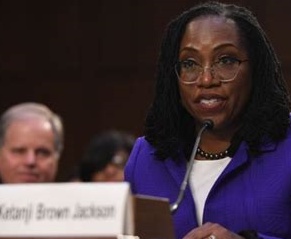
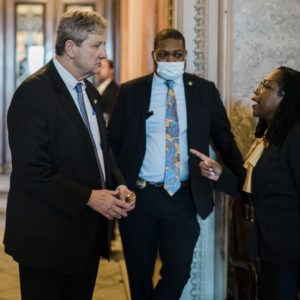
The Supreme Court Nomination of Judge Ketanji Brown Jackson
During vicious, racist questioning by Republican members of the Senate Judiciary Committee, Judge Ketanji Brown Jackson remained dignified, poised and unruffled. Jackson’s record is impeccable. No nominee for the Supreme Court has had stronger credentials.
GOP senators on the committee leveled racist and sexist attacks against Jackson, playing to their radical right-wing base. Many of the questions mirrored QAnon talking points. GOP committee members apparently sought to peel off votes for Jackson’s confirmation while appealing to right-wing voters in their forthcoming congressional and presidential campaigns.
Ted Cruz attacked Jackson with charges about critical race theory. Josh Hawley tried to paint Jackson as “soft on crime.” And Lindsey Graham accused Jackson of aiding terrorism by representing Guantánamo detainees.
Nevertheless, it appears that Jackson will be confirmed to the Supreme Court, the only Black woman ever to serve as a justice on the high court. Although Jackson’s confirmation will not change the skewed ideological balance of the court, she and Sonia Sotomayor will comprise a strong progressive wing of the court.
Guest – Attorney Marjorie Cohn, who is a co-host on Law and Disorder. Marjorie is professor emerita at Thomas Jefferson School of Law, former president of the National Lawyers Guild, and a former criminal defense attorney. Her books include The United States and Torture: Interrogation, Incarceration, Abuse, and she writes a regular column for Truthout.
—-
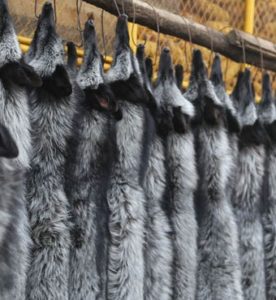

Basic Legal Rights For Animals: Activists and Advocates
Discussions over whether animals are sentient beings, capable of feeling pain, pleasure or suffering, date back as far as ancient thinkers such as Plutarch, Hippocrates and Pythagoras. They all advocated for the fair treatment of animals. The term animal rights stands for the proposition that non-human animals have the right to be treated, not as property, but rather as the individuals they are, with their own desires and needs.
Animal law is now widely taught in law schools across North America. There are 167 law schools in the U.S. and Canada, and 11 in Australia and New Zealand, teaching courses in animal law. Several legal scholars support extending basic legal rights and to personhood to non-human animals.
Critics of animal rights argue that nonhuman animals are unable to enter into a social contract, and thus cannot have rights. Another argument is that animals may be used as resources as long as they don’t undergo unnecessary suffering.
Certain forms of animal rights activism, such as the destruction of fur farms and animal labs by the ALF or Animal Liberation Front, have also attracted criticism, and prompted Congressional reaction by enacting of harsh laws allowing these activities to be prosecuted as terrorism. These laws include the Animal Enterprise Terrorism Act.
Guest – Attorney Tamara Bedic, chairperson of the National Lawyers Guild Animal Rights Project. She is a graduate of the University of Virginia School of Law and a masters degree from Columbia University-NY University. Tamara practices employment law with a focus on women and harassment in the workplace.

————————–
















